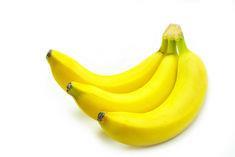
The long-running “banana wars” that have dogged the fruit’s supply for almost two decades are poised to come to an end despite question marks and concerns still remaining.
A reduction in the import entry tariff for Latin American bananas over the next eight years is due to be ratified next Thursday at a plenary session of the European Parliament.
The parliament’s committee on international trade last week gave its seal of approval to the trade deal, signed in late 2009, between the EU and 11 Latin American countries.
The EU is reducing the trade tariff from the previous €176 per tonne to €148, with a further reduction to €114 per tonne planned for the next eight years for bananas from Ecuador, Colombia, Costa Rica, Mexico, Honduras, Panama, Guatemala, Peru, Brazil, Venezuela and Nicaragua.
But the move has angered producers in the ACP countries where it is believed the deal could undermine their zero tariff status.
The schedule of cuts which the EU is set to implement were agreed in Geneva in July 2008 during the negotiations in the World Trade Organisation for a general liberalisation of tariffs under the Doha Development Round.
The Caribbean Banana Exporters Association said: “The schedule of reductions for bananas was intended to form part of that deal. Those wider negotiations broke down for reasons unrelated to bananas. It is therefore illogical, unreasonable and unfair to impose the entire schedule of cuts on the EU banana tariff in isolation from the more general deal to which it was related.”
Steve Chaplin, logistics director at Dole Fresh UK, said the issue was further clouded by a proposed agreement between Colombia, Ecuador and Peru to take their tariff down to €75.
Chaplin said it was “unthinkable” that the EU would allow the bilateral deal, due to be discussed later this year, to give those countries a €39 per tonne advantage.
The EU has offered up funds for an adjustment package intended to help ACP suppliers mitigate the consequences of the reduced tariff protection.
One source told freshinfo: "I don't see it affecting the industry a great deal in the short term as any reduction will be negated by increases in fuel duty.
"It will obviously affect the base price but will be offset by other increases, including minimum wage going up here. If you are dealing with the supermarkets then it is all about accreditations and the quality of the fruit so they will not switch supply sources out of hand due to price."



